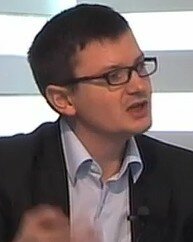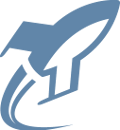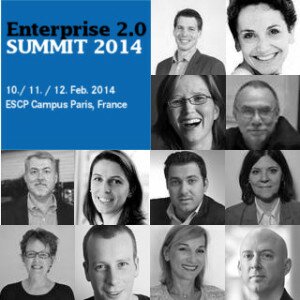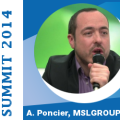As a member of the #e20s Ambassador Team I had the chance to ask Arnaud Rayrole, CEO of LECKO and therefore conference partner of the Enterprise 2.0 SUMMIT, about his perception of the evolution of the social projects. The questions are in line with the other #e20s status-quo interviews.
 Arnaud Rayrole (Blog / ) is one of the founders of LECKO and a well-known expert on the “social business evolution” in France. LECKO is a consultancy and research company based in Paris. Besides their various consultancy references LECKO is also authoring the Référentiel, a functional research on the social platform concepts (unfortunately only in French!).
Arnaud Rayrole (Blog / ) is one of the founders of LECKO and a well-known expert on the “social business evolution” in France. LECKO is a consultancy and research company based in Paris. Besides their various consultancy references LECKO is also authoring the Référentiel, a functional research on the social platform concepts (unfortunately only in French!).
1) How do you evaluate the status-quo on the introduction and establishment of social initiatives in the workplace?
There are several key observations abut the actual status-quo that we have identified in our field of activity:
- We can still see companies that are just starting with the whole idea. They are already convinced of the need to evolve into some kind of transformation but they have the “blank sheet syndrome”. They don’t know where to start, what the best pilote or introduction use case would be or which kind of tool fits best to their project.
- A second observation is that transformation projects have become more “mainstream”, a lot of companies have already such kind of projects or at least have recognized the necessity to transform. But although being aware of the need for transformation these companies are rather “followers” than true “pioneers”. They often keep sticking to traditional organizational approaches, requesting ROI or strong justifications before launching projects. Rather than facilitating participation and transformation this approach spoils the whole evolution process.
- A third key point is that transformation is a long term process, benefits require time to be evolved and achieved. Bit unfortunately companies are still driven by a short term scope, decision makers demand immediate benefits and results to actions. If the results are not tangible, the projects are often being re-evaluated and sometimes limited to the extent of ressources which prevents them from achieving their goals.
2) What are the biggest challenges the projects are facing at the moment?
- Launchng the social project without being able to promise a clear ROI
- Convincing and involving the 2nd and 3rd users circles, beyond users that are pioneers or already convinced
- Involving middle managers in the transformation process and making them “change agents” for the process
3) What are your suggestions / recommendations to advance the projects?
- Stop thinking, stop building business cases : ACT !
- Make the proof of benefits on small scale communities and then progressively scale-up but promoting successes
- Put focus and emphasis on community managers, ambassadors and change agents
- Don’t try to catch up too fast : online collaboration, virtual meetings, virtual project workspaces, social communities, social network, mobility : all these changes cannot be performed in one step, it’s a long term maturity improvement process
- Lacher-prise : don’t try to control all the consequences of any single action before performing it !
4) How can the Enterprise 2.0 SUMMIT 2014 contribute to the progress of this evolution?
By sharing experience and recommendations such as those listed above in section 3 !
Thank you for your answers.











#e20s http://t.co/UPHcfMB4qh